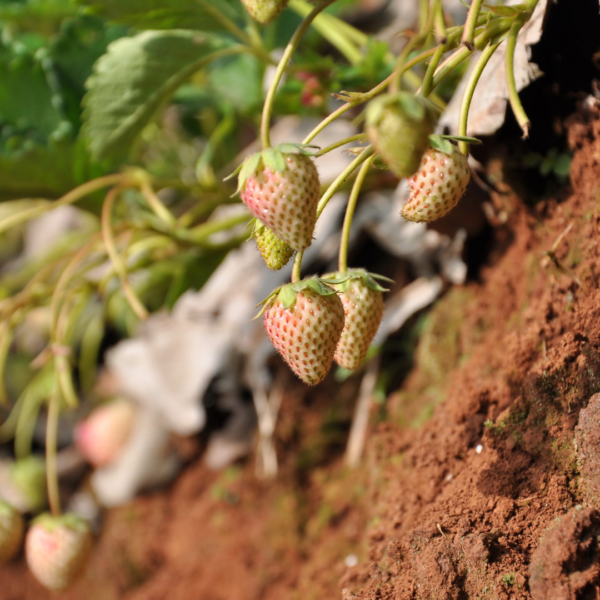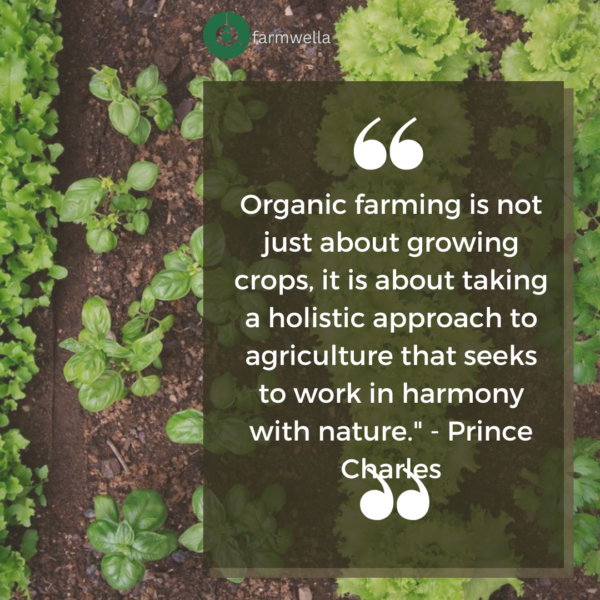
In recent years, there has been a significant shift in consumer behavior toward more health-conscious and environmentally-friendly choices. This has led to a surge in interest in organic farming, with farmers now prioritizing all-natural food production. However, some may question whether organic farming is truly worth the hype.
In this article, we will explore the advantages of organic farming and why it is a smart investment for farmers. Additionally, we will compare and contrast organic farming with conventional farming, highlighting the differences between the two methods. So if you’re a farmer looking to enhance your farming practices, keep reading to learn why organic farming may be the right choice for you.
What is Organic Farming?- Exploring the Benefits of Going All-Natural on Your Farm
Organic farming is a way of growing crops that are focused on using natural methods and techniques. The goal of organic farming is to produce healthy and nutritious food while taking care of the environment. Some of the techniques adopted by organic farmers include:
- Compost
Organic farmers use compost, which is made up of natural materials like leaves, grass, and food scraps, to add nutrients to the soil. By using compost instead of synthetic fertilizers, they can improve the health of the soil and produce healthier crops.
- Crop Rotation
This is a technique used in organic farming where different crops are planted in different areas each year. This helps to avoid the accumulation of pests and diseases in the soil and ensures that the soil remains healthy. By rotating crops, organic farmers can maintain the fertility of the soil and produce healthier crops without relying on synthetic fertilizers.
- Beneficial Insects
Beneficial insects like ladybugs and praying mantises can be used in place of harmful pesticides to control pests in fields in organic farming. These insects feed on pests that can damage crops, which helps to protect the crops in a natural way. This approach to pest control is more sustainable and helps to maintain a healthy environment for farming.
- Trap Crops
These are plants that pests are naturally attracted to, and by planting them around their main crops, organic farmers can lure pests away from their target plants. This is an effective and natural way to control pests without using harmful chemicals, making it a more sustainable approach to farming.
Why Choosing Organic Farming is the Smarter and Safer Choice Over Conventional Farming

- Healthier Food
When conventional farmers use synthetic pesticides on their crops, they can remain on the food even after washing. This can lead to harmful health effects over time. Organic farmers, on the other hand, use natural pest control methods that are safer for both the environment and human health.
- Positive Environmental Impact
Organic farming prioritizes soil health, the environment, and wildlife. Unlike conventional farming practices, organic farming avoids the use of synthetic fertilizers and pesticides that can harm aquatic life and pollute water sources.
By using natural inputs like compost and crop rotation, soil health and fertility are improved over time, reducing the need for chemical inputs. This promotes a healthier ecosystem and ensures that the soil remains nutrient-rich and sustainable for future generations.
- Better Soil Health Management
Soil health is a critical issue that farmers face, and managing it effectively can be a daunting task. Conventional farming methods often rely on synthetic fertilizers and pesticides to maintain soil health, but these chemicals can have adverse effects on the crops, soil, and consumer.
Organic farming provides a more sustainable and eco-friendly solution to this problem. Organic farmers utilize techniques such as crop rotation, composting, and the use of natural fertilizers and pest control methods to improve soil health and fertility over time.
In addition, organic farming techniques such as cover cropping and reduced tillage can help reduce soil erosion. This means that the soil is healthier and there is less pollution of water sources.
- Increased Revenue for Farmers
By producing organic food, farmers can tap into a growing market of health-conscious consumers who are willing to pay a premium for high-quality, sustainably produced food. This can lead to increased revenue and profitability for farmers who adopt organic farming practices.
While the cost of organic food can be higher than conventionally produced food, many consumers are aware that the benefits outweigh the extra expense.
In a Nutshell
Organic farming is a promising path for the future of agriculture as it benefits farmers, the environment, and consumers’ health. With more farmers adopting organic practices, a healthier and more sustainable food system is within reach.